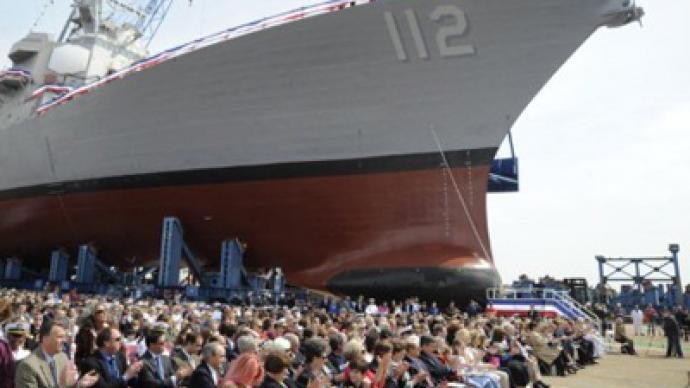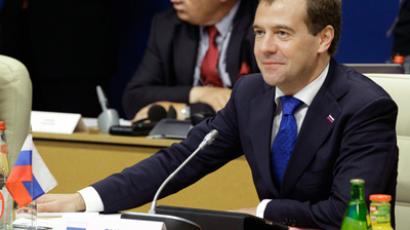Tough talking: Russia and US discuss European missile defense

Russia’s Defense Minister Anatoly Serdyukov met with the US Defense Attache in Moscow to discuss US plans to deploy a missile defense system in Eastern Europe.
Serdyukov emphasized the importance of providing guarantees to Moscow that a missile defense system being constructed by the US and NATO will not take aim at Russia’s strategic nuclear forces.According to a one US defense official who was present at the talks, the Russian Defense Minister did not mince words, telling US Defense Attache Rear Admiral Douglas Venlet that the military project threatened to have “a negative effect on future Russian-U.S. relations.”The US official, who spoke on condition of anonymity due to his proximity to the discussions, added that the meeting was “cordial yet firm.”The meeting took place on Wednesday morning at the US Embassy in Moscow.Serdyukov, meanwhile, noted with satisfaction the present level of cooperation between the two countries, the Russian Defense Ministry press service said in a statement on Wednesday."The minister expressed his satisfaction with the level of cooperation between Russian and US military command bodies and spoke in favor of making this cooperation more practical," it said.Russia has repeatedly warned US and European officials that any missile defense system constructed on its borders will be viewed as a threat to its national security.In May, during the G-8 Summit in Deauville, France, President Dmitry Medvedev said he was dissatisfied with the response his proposals had received by US and NATO officials."I am not satisfied with the American side's reaction to my proposals and with NATO's reaction in general,” the Russian leader told reporters at the conclusion of the French summit. “Why? Because we are wasting time. Even though I spoke about the year 2020 yesterday as a deadline…which is the year when the construction of a four-stage system of the so-called adaptive approach ends." The Russian leader warned the situation had the potential to escalate into a full-blown arms race unless the sides reached an acceptable agreement."After 2020, if we do not come to terms, a real arms race will begin,"Medvedev warned.Proposals in the past for Russia’s participation in the project have been met with a cool reception by US and NATO officials, a fact that only adds to Moscow’s suspicions that the system may be something more than advertised.Dmitry Rogozin, the Russian NATO envoy, has said that Russia's response to any threat would be "comprehensive," without providing details.NATO believes there should be two independent systems that exchange information, while Moscow endorses a joint system with shared oversight and involvement."They [NATO] stubbornly refuse to link their system with ours, insisting on the principle that only NATO should be responsible for its own security and no one else should interfere with this task," Rogozin told RIA Novosti.He added that Russia was concerned about NATO moves to place elements of their missile shield close to Russian borders, which would involve US warships being deployed in the northern seas near the Russian border. Construction of the four-phase European missile defense initiative is expected to continue piecemeal until 2020."Their combat and information-support systems [radars and control centers] should be moved away from our borders," he said.How US and European officials respond to Russia's concerns on this crucial issue has the potential to destabilize the much-hyped reset between Moscow and Washington, as well as introduce another period of unsustainable arms building. Hopefully, the lessons of the Cold War era will not have to be repeated. Robert Bridge, RT














